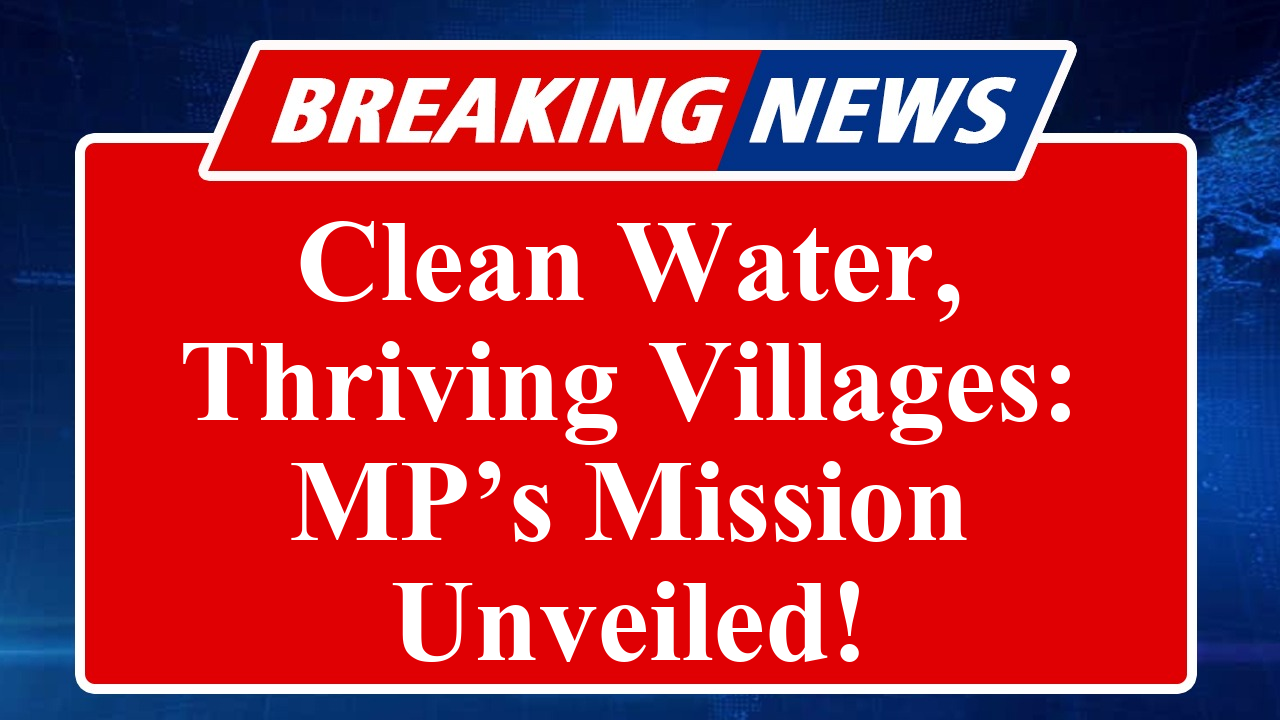“The Clean MP Mission, aligned with Jal Jeevan Mission, aims to provide safe drinking water to all rural households in Madhya Pradesh by 2024. With over 3 million beneficiaries across 3,400 villages, the initiative focuses on sustainable water supply systems, community empowerment, and infrastructure development, tackling water scarcity and contamination to improve health and livelihoods.”
Madhya Pradesh’s Push for Universal Safe Drinking Water
Madhya Pradesh, India’s second-largest state by area, is making significant strides in addressing its water crisis through the Clean MP Mission, a state-level initiative under the national Jal Jeevan Mission (JJM). Launched to ensure safe and adequate drinking water for all rural households by 2024, the mission has transformed access to clean water in rural areas, where only a small fraction of households previously had on-premises water connections.
The New Development Bank (NDB) has provided a $470 million loan to support the Madhya Pradesh Multi Village Water Supply Project, covering 3,400 villages across nine districts. As of January 2025, over 3 million people have benefited from piped water connections, reducing the burden of fetching water from distant sources, often over half a kilometer away. This has particularly impacted women and children, who traditionally bear the responsibility of water collection, freeing up time for education and economic activities.
The mission emphasizes sustainable, community-managed water systems. Around 11,000 Implementation Support Agencies (ISAs), primarily NGOs, have been trained to empower local gram panchayats in planning, operating, and maintaining water infrastructure. A key focus is on women’s leadership, with guidelines prioritizing their participation in water management roles, such as plumbers and pump operators. For instance, women in villages are being trained for regular operation and minor repairs, fostering financial independence and community ownership.
Water quality is another priority. The state has established 2,000 water testing laboratories, with plans to scale up to 6,000, ensuring regular monitoring for contamination. This is critical in Madhya Pradesh, where chemical and bacteriological contamination in groundwater sources like dug wells and hand pumps has been a growing concern. The Jal Jeevan Mission’s Water Quality Management Information System (WQMIS), launched in partnership with the Indian Council of Medical Research, provides real-time data to ensure safe water supply.
The mission also incorporates source sustainability measures, such as greywater management, rainwater harvesting, and groundwater recharge, to combat depleting water tables. In districts like Dindori, WaterAid India has supported communities in building slow sand water filters, enabling access to clean water from natural springs. These efforts align with Sustainable Development Goal 6, which aims for universal access to water, sanitation, and hygiene (WASH) by 2030.
Despite progress, challenges remain. As of November 2023, 70.76% of rural households in India had functional tap connections, but Madhya Pradesh lags behind in some regions due to its vast rural landscape and socio-economic underdevelopment. The mission’s success hinges on continued community engagement, robust financing, and infrastructure maintenance to ensure long-term water security.
Innovative models, like the Naandi Foundation’s community-based water treatment plants, have also been adopted in some areas. These plants, operational for 5–8 hours daily, provide safe drinking water at a nominal fee of Rs 4 for 20 liters, making clean water accessible to even the poorest households. Such initiatives combine public, private, and community contributions to create scalable solutions.
The Clean MP Mission is not just about infrastructure but about transforming lives. By reducing waterborne diseases, improving sanitation, and empowering communities, it is paving the way for healthier and more prosperous rural Madhya Pradesh.
Disclaimer: This article is based on information sourced from recent reports, government websites, and NGOs like UNICEF, WaterAid India, and the New Development Bank. Data is accurate as of July 2025, but implementation progress may vary. Readers are advised to verify updates from official sources like jaljeevanmission.gov.in.

